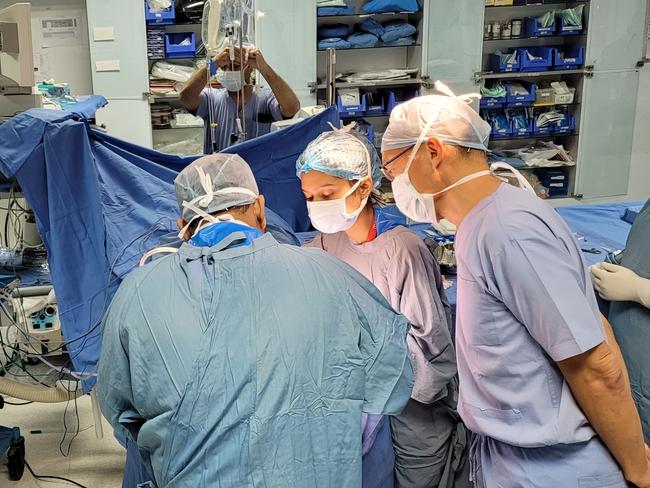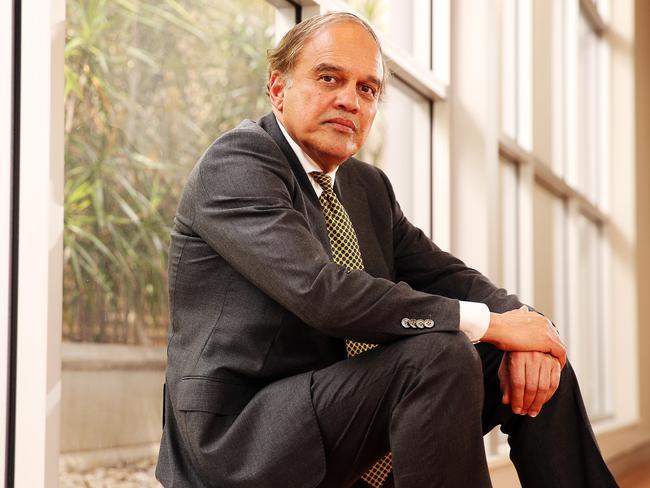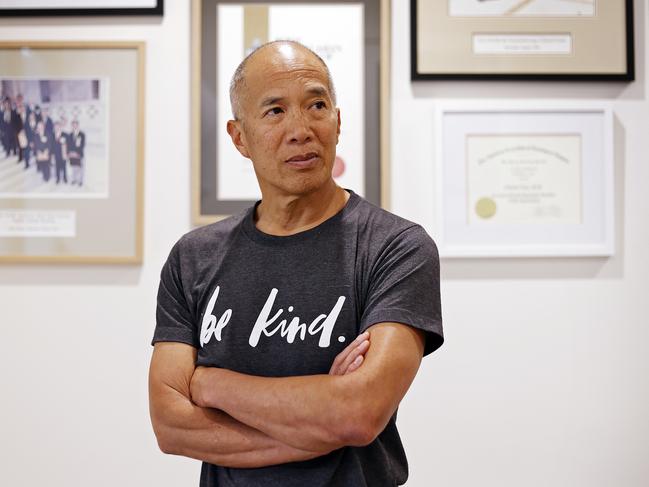Australian doctors claim NSW Medical Council being used to ruin careers
Doctors have hit out at the NSW medical complaints process, saying the practice is unfair and its power is being misused to stop practitioners like Dr Charlie Teo from saving patients’ lives.
NSW
Don't miss out on the headlines from NSW. Followed categories will be added to My News.
Australian doctors claim the regulatory body’s complaint and investigation process is being used as a vehicle for malicious and vexatious complaints that can ruin careers and stop good doctors from saving lives.
Specialists from a variety of fields of medicine from NSW, Queensland, Victoria and Western Australia say the Australian Health Practitioner Regulation Agency (AHPRA) which was set up “in good faith to protect patients”, was ineffective and its processes have led to suicides.
Townsville-based intensive care medicine specialist Dr John Stokes, who worked for more than 40 years, retired only after vexatious complaints were made about him by another doctor.
He was ultimately cleared of any wrongdoing by AHPRA, but felt the need to retire as a result.
He said AHPRA’s complaint and investigation processes “gives the opportunity for people to make complaints because the legislation says if you make a complaint in ‘good faith’, it will be investigated – but who determines what is good faith?”.

“The system is able to be misused and has been abused. There are at least two neurosurgeons in Australia that have committed suicide after complaints that have been made by colleagues – and there are other good doctors in other specialties that have suffered a similar fate,” he said.
One doctor, who refused to be named for fear of backlash, told The Sunday Telegraph that his own brother, also a doctor, suicided after being the subject of “false accusations”.
“It all turned out to be unfounded but the system was used as a blunt instrument by jealous colleagues. It can, and is, being used as a mechanism to bring people down.”
Retired cancer specialist Dr Kiran Phadke said: “In my opinion the NSW Medical Council (the state arm of AHPRA) is a law unto themselves and no one is policing them”.
“The way it operates compared to how it was set up, to support patients, it doesn’t seem to be fulfilling that purpose in my opinion,” he said.
“There is no real procedural fairness. The system is so circular and complex, designed to wear you down.”

Dr Phadke, who started up oncology services at both Sutherland and St George hospitals and was instrumental in building the Cancer Care Centre, had his career derailed in 2016 when he was suspended pending investigations into concerns raised by a nurse about the treatment of six patients between 2003 and 2014.
He was cleared to return to work in 2018.
Dr Phadke, who was ultimately cleared of wrongdoing but lost 12 months of work, said he “managed to get some publicity” which helped turn his case around.
“I had a huge amount of patient support, and they started to get agitated about what was happening to me,” Dr Phadke said.
“Ben Fordham put me on air one day and the whole switchboard lit up.
“He contacted Mr Hazzard who agreed to look at my situation, and he really turned things around for me.”
The doctor spoke after learning of the restrictions placed on Charlie Teo. His daughter, Alana Phadke, is the CEO of the Charlie Teo Foundation.

“The circumstances of what has happened to Dr Teo is quite similar to the way I was treated by the process which I think needs an overhaul,” Dr Phadke said.
“This is the kind of problem where there’s no real procedural fairness. Medical council has no one looking over them; they are a law unto themselves and I think ultimately should be overseen by someone else, or responsible to the Health Minister.”
Dr Phadke said that once doctors are restricted under section 150, it is very difficult to clear their name even when found they have no case to answer.
“I believe the system discourages specialists from practising good medicine because if they deviate from so-called protocol they are deemed to have done something wrong, even if you’ve advised your patient of the consequences and side effects and it’s the appropriate treatment in that particular situation.
“I would have treated thousands of patients and they picked 7 or 8 or 9 to have a look at.”
Dr Phadke said any doctor who is well liked and respected by the public and their patients, “that’s not good for them in this situation.”
“I used to do a lot of charity work, I was popular amongst my patients, but in Australia you find that when you are well known, fame is a bad thing, because someone always wants to pull you down.
“None of the complaints that started all this came from my patients. My patients were upset that they had lost their doctor, and I am so grateful they stood up for me. There’s something wrong with the system and that needs to be looked at.”
A Medical Council of NSW spokeswoman said: “By law, the council cannot provide information about an individual practitioner or ongoing investigations unless it is information that is publicly available. The Council cannot make any further public comment at this time.”




